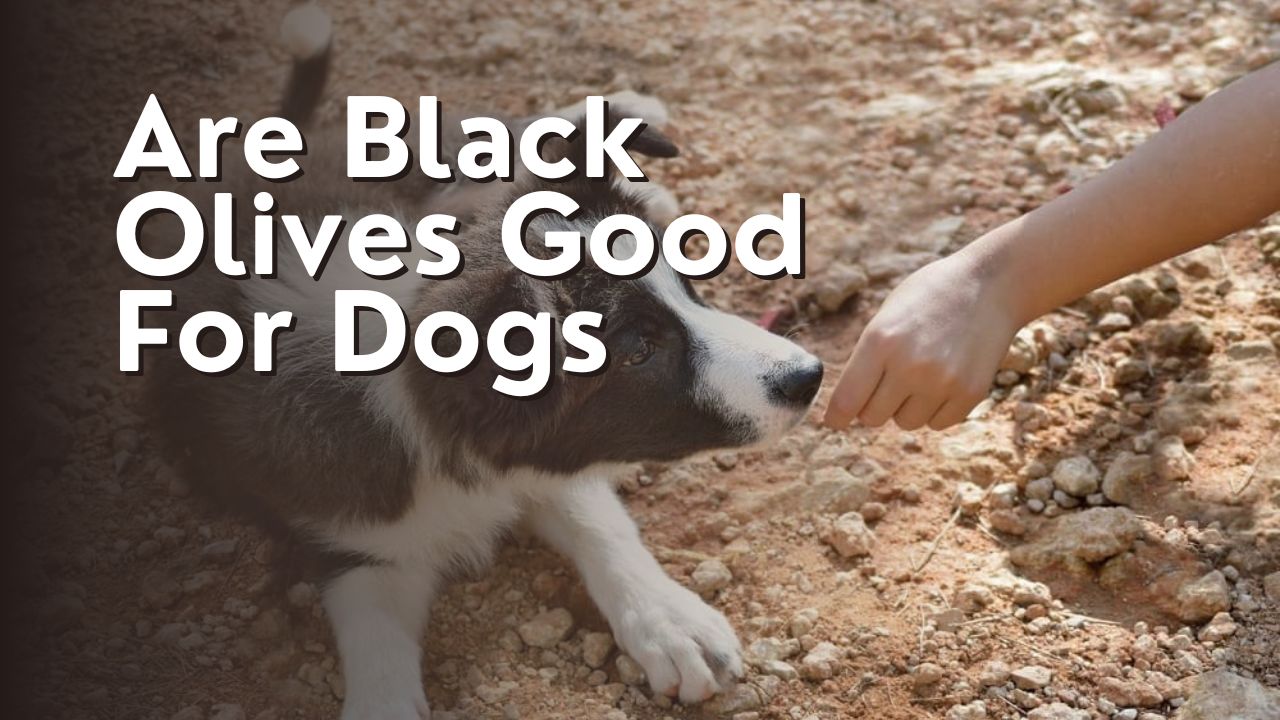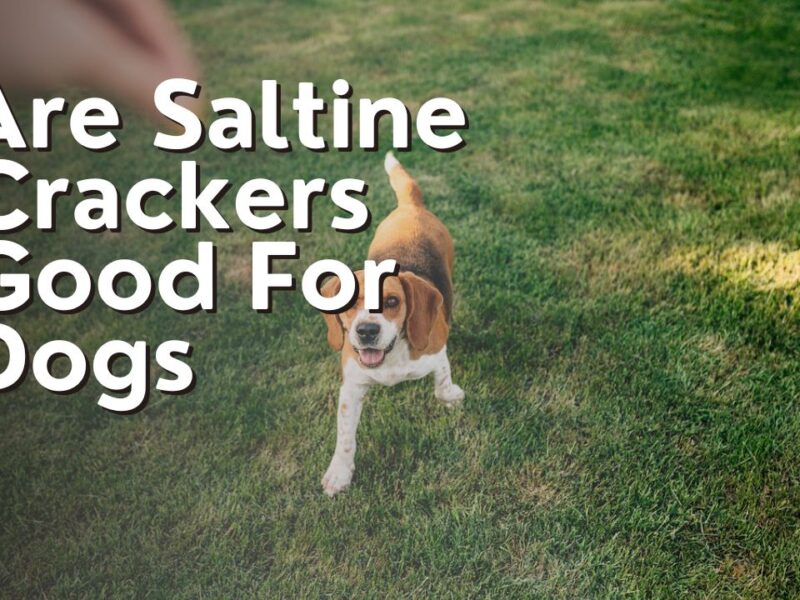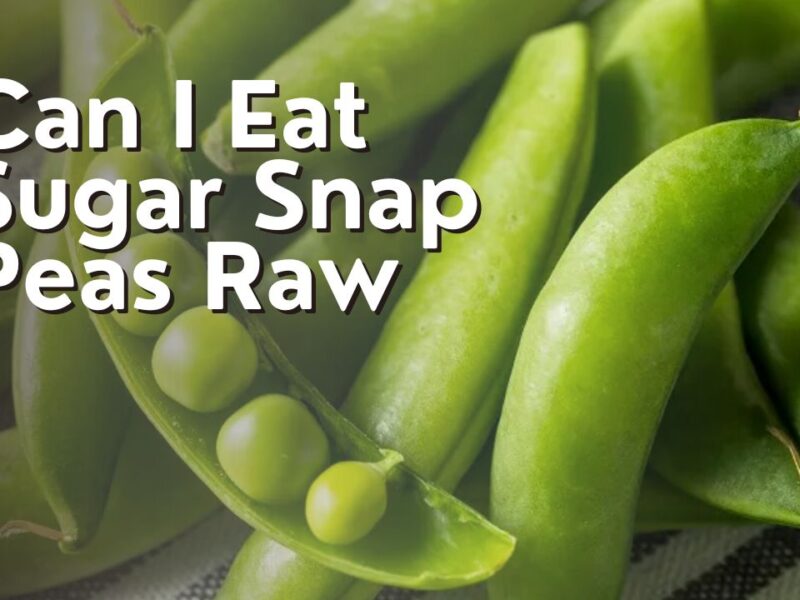Hey there! So you’re wondering if black olives are good for dogs, huh? Well, I’ve got some answers for you. As a dog lover and owner myself, I’ve always been curious about what foods are safe and beneficial for our furry friends. In this article, we’ll explore the nutritional benefits of black olives for dogs, as well as how to introduce them into their diet.
Now, it’s important to remember that moderation is key when it comes to feeding any new food to your dog. While black olives can provide some great nutrients, we need to be mindful of portion sizes and any potential allergies or sensitivities your pup may have.
But don’t worry, we’ll cover all the bases and give you some other safe and healthy treat options for your dog too. So, let’s dig in and find out if black olives are a good addition to your pup’s diet!
Nutritional Benefits of Black Olives for Dogs
Did you know that black olives can provide a range of nutritional benefits for your furry friend? As a dog owner, it’s important to ensure that your pet is getting a well-balanced diet, and black olives can be a healthy addition. While they should be given in moderation, black olives are a good source of healthy fats, which can contribute to your dog’s overall well-being.
Black olives are also rich in antioxidants, which can help boost your dog’s immune system and protect against diseases. These antioxidants can help reduce inflammation and promote a healthy heart. Additionally, black olives contain vitamins A and E, which are essential for maintaining healthy skin and coat.
It’s worth noting that while black olives can be beneficial for dogs, they should not be given in excessive amounts. Too many olives can lead to an upset stomach or even pancreatitis in some cases. Always consult with your veterinarian before introducing any new food into your dog’s diet.
In conclusion, black olives can provide nutritional benefits for your dog when given in moderation. They are a good source of healthy fats, antioxidants, and vitamins. However, it’s important to remember that every dog is different, so it’s best to consult with your vet to ensure that black olives are a suitable addition to your pet’s diet.
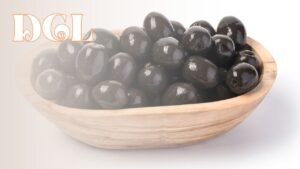
Moderation is Key
Finding the right balance is crucial when it comes to ensuring our furry friends’ well-being. This holds true even when it comes to feeding them black olives. While black olives can provide some nutritional benefits to dogs, it is important to remember that moderation is key.
Black olives are low in calories and contain healthy fats, which can be beneficial for dogs. They also contain vitamins A and E, which are important for their overall health. However, it is important not to overfeed them with black olives. Too many black olives can lead to an upset stomach or diarrhea in dogs, due to their high sodium content.
As a responsible pet owner, I make sure to give my dog black olives as an occasional treat rather than a regular part of his diet. I always consult with my veterinarian before introducing any new food into his diet. This way, I can ensure that I am providing him with a balanced and healthy diet that meets his specific nutritional needs.
In conclusion, while black olives can be a nutritious addition to a dog’s diet, it is essential to remember that moderation is key. By finding the right balance and consulting with a veterinarian, we can ensure our furry friends’ well-being and keep them healthy and happy.
How to Introduce Black Olives to Your Dog’s Diet
When introducing this flavorful treat to your furry companion, you can start by slowly incorporating small pieces into their regular meals. This will allow your dog to gradually get used to the taste and texture of black olives without overwhelming their system. Remember, moderation is key, so it’s important not to overdo it.
To help you better understand how to introduce black olives to your dog’s diet, I have created a table below that outlines some dos and don’ts:
| DOs | DON’Ts |
|---|---|
| Start with small pieces | Give too many olives at once |
| Watch for any signs of allergies or digestive issues | Force your dog to eat olives |
| Consult with your veterinarian before introducing any new foods | Feed your dog olives with pits |
| Monitor your dog’s reaction and adjust accordingly | Substitute olives for a balanced diet |
By following these guidelines, you can ensure a safe and enjoyable experience for your dog. It’s important to remember that every dog is different, so it’s always a good idea to consult with your veterinarian before making any major changes to their diet. With proper moderation and supervision, black olives can be a tasty and healthy addition to your dog’s meals.
Other Safe and Healthy Treat Options for Dogs
When it comes to treating my dog, I like to explore different options that are both safe and healthy.
One option is incorporating fruits and vegetables into their diet, such as apples or carrots.
Lean protein, like chicken or turkey, is another great choice that provides essential nutrients.
Lastly, I sometimes opt for commercial dog treats that are specifically made with natural and nutritious ingredients.
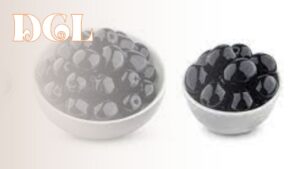
Fruits and Vegetables
If you’re looking to add some variety to your furry friend’s diet, black olives can be a tasty and healthy treat for them. Not only are they low in calories and fat, but they also provide essential nutrients like vitamin E and iron. However, it’s important to feed them in moderation as too many can cause digestive issues. When it comes to fruits and vegetables, there are plenty of other options that can be great for dogs too. For example, carrots are a crunchy and nutritious snack that can help improve their dental health. Blueberries are packed with antioxidants, while sweet potatoes are a great source of fiber. Just remember to always check with your vet before introducing any new foods to your dog’s diet.
| Pros | Cons |
|---|---|
| Low in calories | Can cause digestive issues if eaten in excess |
| High in vitamin E and iron | Some dogs may not like the taste |
| Variety of options available | Check with your vet before introducing new foods |
Lean Protein
Now, let’s talk about lean protein, which is another important component of a dog’s diet.
As a dog owner, I know how crucial it is to provide our furry friends with the right balance of nutrients.
Lean protein sources, such as chicken, turkey, and fish, can be excellent options for dogs. Not only are they packed with essential amino acids, but they are also low in fat and easy to digest.
When choosing a lean protein for your dog, it’s essential to ensure that it’s cooked thoroughly and doesn’t contain any seasonings or additives that could be harmful to them.
By incorporating lean protein into your dog’s diet, you can help support their muscle development, promote a healthy coat, and enhance their overall well-being.
- Lean protein options for dogs:
- Chicken: Rich in protein and low in fat.
- Turkey: A lean source of protein that is easy to digest.
- Fish: Provides omega-3 fatty acids for a healthy coat and skin.
Commercial Dog Treats
For a more varied treat option, you should consider exploring the wide range of commercial dog treats available on the market.
These treats are specially formulated for dogs, providing them with a tasty and nutritious snack. They come in various flavors, textures, and sizes, making it easy to find one that your dog will love.
Commercial dog treats are typically made with high-quality ingredients that are safe for dogs to consume. They often contain lean proteins, such as chicken or turkey, which are beneficial for your dog’s overall health.
These treats can be a great option for training rewards or just as a special treat for your furry friend. Just remember to always check the ingredients list and choose treats that are appropriate for your dog’s size and dietary needs.
Final Thoughts on Feeding Black Olives to Dogs
In conclusion, let’s remember that feeding black olives to our furry friends can add a tasty twist to their diet! While it’s generally safe for dogs to consume black olives in moderation, there are a few things to keep in mind.
First and foremost, always consult with your veterinarian before introducing any new food into your dog’s diet. They’ll provide specific recommendations based on your dog’s individual needs and health conditions.
If you decide to give black olives to your dog, choose plain, unsalted ones without added seasonings or spices. This ensures your dog doesn’t consume any harmful ingredients that could upset its stomach or cause other health issues.
Here are a few key points to remember when feeding black olives to your dog:
- Feed them in moderation: Black olives should be an occasional snack, not a staple food.
- Monitor for adverse reactions: Watch for signs of digestive upset or allergic reactions. If you notice any adverse symptoms, stop feeding black olives and consult your veterinarian.
- Pit and slice the olives: Remove the pits to prevent choking hazards and slice the olives into smaller pieces for easier digestion.
- Balance their overall diet: Incorporate black olives into a well-balanced diet that includes other nutritious foods formulated for dogs.
By following these guidelines and practicing moderation, you can safely introduce black olives as a tasty and healthy addition to your dog’s diet.
Frequently Asked Questions
Can black olives be harmful to dogs?
No, black olives can be harmful to dogs. They contain a substance called oleuropein, which can cause stomach upset, vomiting, and diarrhea in dogs. It’s best to avoid giving them black olives.
Are all types of olives safe for dogs to consume?
All types of olives may not be safe for dogs to consume. While some olives are generally safe for dogs, others can be harmful due to their high sodium content and potential for causing digestive issues.
How many black olives can dogs have in a day?
Dogs should only have black olives in moderation. They can be a tasty treat, but too many can cause stomach upset or diarrhea. It’s best to consult with a veterinarian about the appropriate amount for your dog.
Can black olives cause digestive issues in dogs?
Black olives can cause digestive issues in dogs. They may lead to upset stomach, diarrhea, or vomiting. It’s best to avoid giving black olives to dogs to prevent any potential health problems.
Are there any potential allergies or sensitivities that dogs may have to black olives?
There could be potential allergies or sensitivities that dogs may have to black olives. It’s important to monitor their reaction and consult with a veterinarian before including them in their diet.
Conclusion
In conclusion, I’ve learned that black olives can be a nutritious and safe treat for dogs when given in moderation. They are a good source of healthy fats and antioxidants, which can benefit their overall health.
However, it’s important to introduce black olives gradually and watch for any signs of digestive upset. It’s also essential to remember that black olives should only be given as an occasional treat and not as a regular part of their diet.
There are other safe and healthy treatment options available for dogs that can provide a variety of nutrients.
